- Home
- Bryce Courtenay
FORTUNE COOKIE
FORTUNE COOKIE Read online
FORTUNE
COOKIE
BRYCE
COURTENAY
VIKING
an imprint of
PENGUIN BOOKS
BOOKS BY BRYCE COURTENAY
The Power of One
Tandia
April Fool’s Day
A Recipe for Dreaming
The Family Frying Pan
The Night Country
Jessica
Smoky Joe’s Cafe
Four Fires
Matthew Flinders’ Cat
Brother Fish
Whitethorn
Sylvia
The Persimmon Tree
Fishing for Stars
The Story of Danny Dunn
Fortune Cookie
THE AUSTRALIAN TRILOGY
The Potato Factory
Tommo & Hawk
Solomon’s Song
Also available in one volume,
as The Australian Trilogy
For
Robbee Minicola
Contents
PART ONE Singapore Sling
CHAPTER ONE
CHAPTER TWO
CHAPTER THREE
CHAPTER FOUR
CHAPTER FIVE
CHAPTER SIX
CHAPTER SEVEN
CHAPTER EIGHT
CHAPTER NINE
PART TWO Thursday Girl
CHAPTER TEN
CHAPTER ELEVEN
CHAPTER TWELVE
CHAPTER THIRTEEN
CHAPTER FOURTEEN
CHAPTER FIFTEEN
CHAPTER SIXTEEN
EPILOGUE
ACKNOWLEDGEMENTS
PART ONE
Singapore Sling
CHAPTER ONE
MY NAME IS SIMON KOO. I’m fourth-generation Australian. My great-great-grandfather, Koo Bing Fuk, came out from China in the late 1850s to the gold rush, got lucky (ha ha) working the tailings the white miners had abandoned, and by persistence and hard work made a few bob; enough to get a bit of a start, anyway.
Back then even a bit was considered a lot. Life wasn’t easy. All the maxims of the time recommended caution, and nobody is more frugal than a Chinese peasant. Never waste a grain of winter rice is the Chinese equivalent of A penny saved is a penny earned. Ah Koo, as he would commonly be known, needed no such advice.
After removing the ore that could be won with a moderate amount of labour, many white prospectors quickly became discouraged – at least, that was true for much of the human detritus that had washed in from the four corners with their arses hanging out of their trousers. Most had dreamed of a quick and lazy fortune, but finding gold usually meant backbreaking work from dawn to dusk and a bit of luck besides. They deeply resented the idea of those dirty yellow bastards – the celestials, Mongolians, Chinks, as they were variously known – showing them up by working hard and striking paydirt in claims the white miners had abandoned out of idleness.
It soon became apparent to all the layabouts, drunks and no-hopers that the celestials were fair game, not officially welcome at the diggings, or anywhere else, for that matter. So when they were pissed they’d play ‘Let’s go get us a Chink’. Beating up a Mongolian was considered an almost honourable pastime and certainly not an incident that need trouble an indifferent officer of the law. The many incidents of Chinese beaten to death were simply recorded as mining accidents.
A favourite trick was for a group of whites to corner a Chinaman and throw him to the ground facedown. One would sit on his legs, while another would plant a boot on his shoulder and another on his wrist. Taking a bowie knife, the ringleader would run it around the circumference of the pigtail, then rip it off the back of his head. This was gleefully known among the white miners as ‘hog-tailing’, a term borrowed from the Californian gold rush.
Soon the cry went up in New South Wales and Victoria: ‘The Chinamen are stealing our gold! No more, celestials!’ Both colonies quickly locked and chained the welcoming gate.
However, Ah Koo had arrived in the second wave of Chinese crammed into the holds of the three-masted barques from Shanghai that diverted to the tiny port of Robe in the free settlers’ colony of South Australia, where no restrictions or landing fees applied. Robe was a great distance from the nearest goldfields, so Ah Koo, along with others, walked more than 700 miles overland to the Yass area of New South Wales, ignoring the shorter journey to the Victorian diggings.
When I was at uni I went to the archives and searched through some of the old newspapers. There were numerous reports of farmers and townspeople seeing long files of Chinese in conical hats, their pigtails flopping behind them, snaking across the black soil plains of New South Wales. They wore blue cotton smocks and calf-length blue trousers, and bore heavy loads balanced on long bamboo poles.
Not long after Ah Koo arrived at the Lambing Flat diggings, on a night with a full moon that was so bright you could almost thread a needle by it, he woke suddenly to see a group of white prospectors armed with pick handles approaching the area where he and several other Chinese had begun to work abandoned tailings. He’d been warned of such attacks and, hesitating only long enough to call a warning to his neighbour Wong Ka Leung, a man from north Shanghai, he ran and hid in the bush nearby.
His neighbour, exhausted from a long day’s labour on the miners’ sluice, failed to wake or hear his warning cry. Ah Koo watched helplessly as drunken white miners surrounded Ah Wong’s tent, dragged him out, threw him to the ground and proceeded to hog-tail him then beat him to a pulp. The leader of the pack triumphantly looped the bloody pigtail through his belt, then, yelling and whooping like a pack of wild dogs, they moved on to find further celestial prey.
Ah Koo dragged his bleeding, unconscious countryman into his tent and, over a period of several weeks, nursed him back to health, undoubtedly saving his life. Moreover, on the morning after Ah Wong’s brutal hog-tailing, Ah Koo prayed to the gods for forgiveness, then cut off his own pigtail.
He was a Chinese peasant and therefore accustomed to a world of hardship and injustice; sitting on your arse or complaining wasn’t an option, and physical harm would not be a discouragement. He was beaten more than once, but each time he’d pick himself up, rub woodlock oil or dit da jow – the universal cure-all most Chinese miners carried – on his cuts and bruises and return to his sluice. ‘It’s better here than in China,’ he would tell himself, although he was not always convinced.
Ah Koo had lost his entire family in the Taiping Rebellion, led by the psychopath general Hong Xiuquan, a converted Christian who improbably termed himself ‘Younger Brother of Christ’ and who, in the name of his crucified older brother, butchered an estimated twenty million of his countrymen, including three generations of Ah Koo’s family.
In China the family is everything, both your identity and your reason for existence; without family you are simply a wandering ghost. Ah Koo decided he must ask for his ancestors’ permission and, as the lone survivor of his ancient family, begin again elsewhere. Like others from southern China, he had heard rumours of the Australian gold rush or, as it was termed, New Yellow Gold Mountain – ‘new’ because California (the original Yellow Gold Mountain) had been depleted. How he got to Australia was never explained. Perhaps he worked his passage or had sufficient money to pay for the fare in steerage, because he wasn’t recruited as indentured labour by one of the many unscrupulous Chinese or European profiteers.
Indentured labourers were virtual slaves, made to sleep on the ground in leaky tents or in crude huts infested with fleas and lice, given barely enough to eat, and usually cheated out of the pittance they earned by being charged for their accommodation and two bowls of rice each day. It was not why they had come to the New Yellow Gold Mountain. They too could dream of fortunes to
be made. Even stupid men know that if they are going to endure hardship, then it should be for gain. At the first opportunity they would abscond and head straight for the goldfields. There they’d discover they were prevented from staking a claim by the bloody-minded white miners, and so would be forced to work the tailings of the gwai-lo prospectors who took the easy gold and discarded the rest.
Ah Koo knew he was on his own, that his life mattered to no one and that no family would grieve his passing or burn paper money to pay for a more comfortable existence for him in the hereafter. His seed was all that was left. It was up to him to start again. ‘Just a little more,’ he told himself, ‘then I can buy a bit of land and send money home to China to buy a wife.’ There was no point returning to China, where only his ancestral spirits resided. This new land would become his home.
He decided he’d order a strong peasant girl with child-bearing hips, who would cost him next to nothing in dowry money. Women were unwanted, considered a ‘waste of rice’, most of them not even worthy of a name but simply numbered according to the order of their birth. An ugly one would come even cheaper. One day, he promised himself, he’d revisit China to pray and pay homage to his ancestors, but for now he would put down roots here in New Yellow Gold Mountain.
And that’s just what he did. After the Lambing Flat riots, Ah Koo headed north-east to Bathurst, to try his luck. Backbreaking work won him a little more gold, and he moved on, walking across much of New South Wales before he found a place where he believed he could make a living as a market gardener without being beaten or despised.
He bought ten acres of land that had recently been plundered for its cedar. It lay beside a permanently running creek in The Valley, one of several beautiful forested valleys nestling between the hills that roll up forty or so miles into the hinterland from the New South Wales Central Coast. All the other valleys had names, but this one was simply ‘The Valley’. The lack of a name gave it a unique personality, as if it epitomised everything a valley should be. Even today, with the great forests gone and the hills bald except for the pastures the dairy farmers planted, people reckon it to be the most beautiful of them all.
Ah Koo’s land was twenty-five miles inland – a long day’s walk from the coast – and dirt cheap. Using a long-handled axe, he felled the native eucalypts remaining after the timber-getters had taken the red cedar from the virgin forest, then he hand-cleared the undergrowth and burned or dynamited the stumps. Finally he hauled the rich alluvial soil from the creek flats and mixed it with ash from the burnt stumps to nourish the soil. The market garden he established would supply vegetables to the timber-getters still logging the ancient forest for cedar.
The huge ancient cedar logs they took out were loaded onto timber jinkers and hauled by bullock team the forty or so miles to Tuggerah Lakes, to be sent by boat to Sydney, where this beautiful timber, prized elsewhere in the world for cabinet-making, was squandered as building timber for framing, basic carpentry and joinery.
Three years later, at the age of twenty-eight, with three of his ten acres under cultivation, Ah Koo walked to the coast and purchased a ticket to Sydney on a schooner plying the route along the Hawkesbury River and past coastal farms and settlements. In Chinatown, then situated just beyond the city area, near Surry Hills, he engaged the services of a scribe and sent a letter to the headman in his village with dowry money for a bride. He asked him to have her bring a supply of persimmon and pomegranate seeds as well as the seeds of numerous Chinese vegetables. He also requested a full set of carpenter’s chisels, the best the village blacksmith could make, the cost of which he added to the money for her dowry, together with her food and passage in steerage on a three-masted barque from Shanghai. He stressed that looks were of no consequence, but that she should be strong and willing to work and must come from a lucky family with a reputation for predominantly male offspring.
Ah Koo knew that the wait for his bride to arrive would be a prolonged one, although now, with the gold rush waning, the panic over the arrival of the Chinese hordes had faded a little and shipping from Shanghai to Sydney was once again permitted. Along with the letter to the village headman in China, he’d included another for his bride to present to the Chinese scribe and general fixer in Chinatown upon her arrival in Sydney, which simply asked him to arrange to have her sent up the coast to Tuggerah Lakes. There was also a letter in English for her to give to the harbourmaster, requesting that she be sent to The Valley on a returning bullock wagon. Procuring a bride would take almost eighteen months.
Pushing his barrow towards his tool shed at the end of a bleak wintery Sunday, Ah Koo heard the sharp crack of a bullocky’s whip from the wagon track above his property, its echo followed almost immediately by a piercing whistle. Leaving the barrow, he ran up to the track and waved to the bullocky.
‘I brought your missus!’ the bullock driver yelled, jerking his thumb over his shoulder towards the back of the wagon. Then, as Ah Koo drew closer, he added in a sympathetic voice, ‘Jeez, mate, she ain’t the best lookin’ heifer in the flamin’ paddock.’
Ah Koo glanced fleetingly at the solid shape huddled near the end of the long wagon and observed her broad, flat face, which was marked by smallpox scars. It is nothing, he told himself. Progeny are not born with such scars. Then he turned to the bullocky and withdrew a small leather pouch from his trouser pocket. Taking out half a crown, he held it between the forefingers and thumbs of both hands and proffered it with a stiff bow.
It was a generous payment, but the bullocky waved it away. ‘Nah, keep yer money, mate. Got any spuds? Bag’a spuds’ll do me fine.’ He turned in his seat to watch the bride-to-be clamber down from the wagon and shook his head. ‘Gawd help the miserable little buggers youse’re gunna make between the two of yiz.’
The village headman in China had conscientiously complied with Ah Koo’s brief and sent nineteen-year-old daughter number two from a family with five sons. As an indication of her good fortune in obtaining a husband from a well-remembered family, she had been officially honoured with a name, Xiu Ma Jiao – Little Sparrow. Whether this was meant as a joke Ah Koo didn’t know or care. In fact, he was delighted with the choice; it had been money well spent. Looks had never been the prime consideration but strength was, and Little Sparrow was everything he’d hoped for in terms of her body. He was reminded of the proverb: Women are all beautiful in the dark, but in the dawn not all can guide a plough. She was also deeply respectful – a quality Ah Koo had long forgotten – quietly spoken, accustomed to hard work, and, he would discover, a good cook and thrifty housekeeper. All his needs were met when she allowed him to use her body whenever he wished, moving silently in compliant rhythm with his grunting thrusts.
With both of them working from dawn to sunset, the market garden prospered. Fresh produce, though of a specific kind, was locally in demand. Timber-getters and their gap-toothed wives liked plain food and were not all that keen on a plate piled high with green veggies. Their meals consisted of meat and spuds, carrots, cabbage and onions – all boiled to mush – with roast pumpkin on Sunday.
Ah Koo and Little Sparrow were able to cultivate a further two acres, and with permanent water from the creek for irrigation, regular rainfall and abundant sunshine, there was soon more than Ah Koo could sell. He purchased a pair of pigs to eat the excess, along with any spoiled vegetables and garden refuse, but as a peasant he abhorred the idea of feeding perfectly good produce to swine. He’d noted that in the timber camps where the single men lived, there was almost no call for vegetables other than potatoes and onions and the occasional bag of carrots. Discussing this with Little Sparrow, he asked for her opinion. Surprised, she suggested timidly, ‘Honourable husband, I will cook them food and they will pay you.’ Something had changed between them since she had delivered a fine strong son for him, the first of the large family he meant to create to replace all he had lost. He had named the baby Koo Li Chin, to bless it with strength and wealth, and secretly hoped that the second child now sw
elling Little Sparrow’s belly would also be a boy.
So Little Sparrow started … well, I suppose you could call it a Chinese chophouse, but it was really just four bush poles and a tin roof with an open fire and a mud-brick oven in the middle. Even so, they were soon using up the extra produce and making an even better living, feeding the hungry men who, ravenous from a day in the forest or on the farm, sat on logs surrounding the open-air kitchen scoffing Chinese chow off chipped enamel plates. Little Sparrow was unknowingly one of the precursors of the Chinese restaurants responsible for the love affair Australians have with Chinese food to this day.
Ah Koo bought a Yorkshire–Berkshire crossbreed sow and boar from a Hawkesbury farmer and expanded the piggery. Soon Little Sparrow added pork dumplings, wantons, fluffy pork buns baked in the clay oven and other dishes from pigs grown fat on spoiled produce and kitchen peelings.
One of these recipes my mum still cooks when I’m home. It’s called ‘Ants crawling along a log’. As a kid I’d giggle about it – still do – but it’s delicious. If you like, I’ll give you the recipe. The dish is made with marinated minced pork, dried shiitake mushrooms, vermicelli, vegetables, soy sauce, sugar, vegetable oil, black bean sauce, ginger, garlic, shallots and rice wine. You stir-fry the pork mince in a couple of tablespoons of oil, stir in the chopped shallots, garlic (four large cloves) and ginger (a quarter of a small cup), then the mushrooms and other vegetables meanwhile adding the sauces to taste. When cooked, remove the pork and vegetables, leaving the sauces in the wok, to which you add the vermicelli and stir-fry until it is cooked. Return everything to the pan and stir-fry to heat, and the dish is ready to serve. I’m buggered if I know why it’s called ‘Ants crawling along a log’.
Ah Koo was clear-eyed about things. Life, in the sense of having a good or enjoyable existence, was something he didn’t pause to contemplate. Life was about survival, taking it one day at a time. If you got through it, you were grateful. It didn’t pay to dream. At least their lives weren’t threatened by that rampaging madman who had claimed to be the brother of the Christian god.

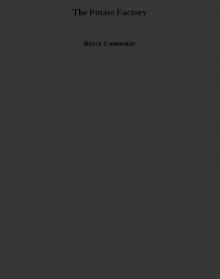 The Potato Factory
The Potato Factory The Power of One
The Power of One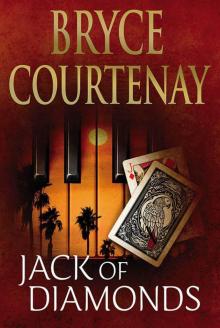 Jack of Diamonds
Jack of Diamonds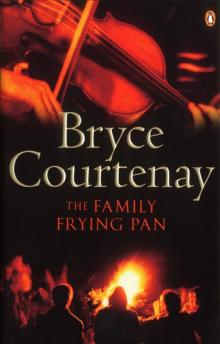 The Family Frying Pan
The Family Frying Pan April Fool's Day
April Fool's Day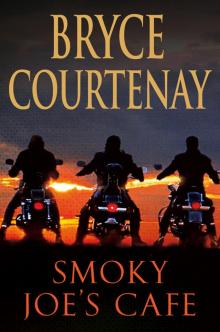 Smoky Joe's Cafe
Smoky Joe's Cafe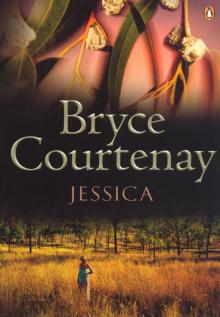 Jessica
Jessica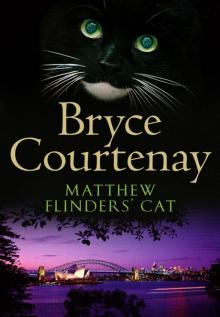 Matthew Flinders' Cat
Matthew Flinders' Cat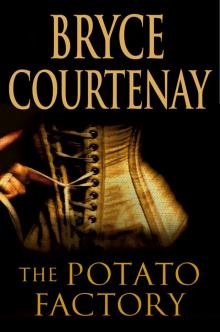 Potato Factory
Potato Factory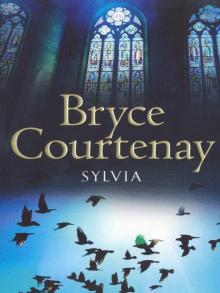 Sylvia
Sylvia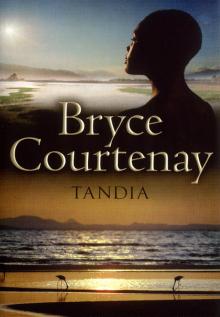 Tandia
Tandia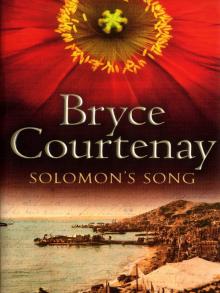 Solomon's Song
Solomon's Song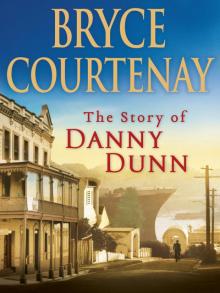 The Story of Danny Dunn
The Story of Danny Dunn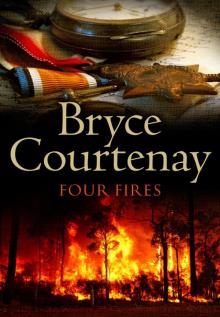 Four Fires
Four Fires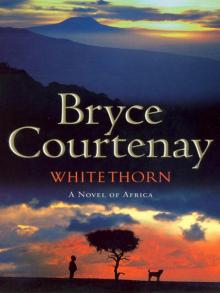 Whitethorn
Whitethorn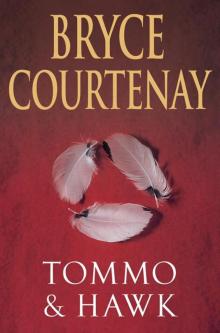 Tommo and Hawk
Tommo and Hawk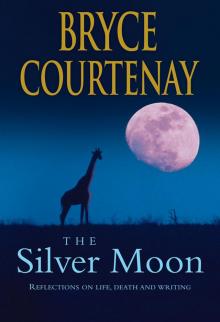 The Silver Moon
The Silver Moon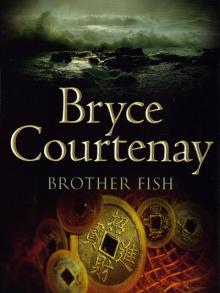 Brother Fish
Brother Fish FORTUNE COOKIE
FORTUNE COOKIE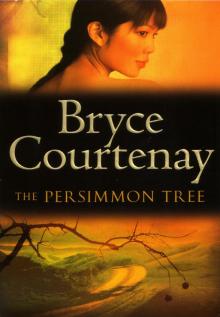 The Persimmon Tree
The Persimmon Tree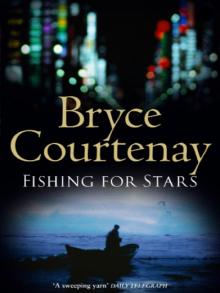 Fishing for Stars
Fishing for Stars